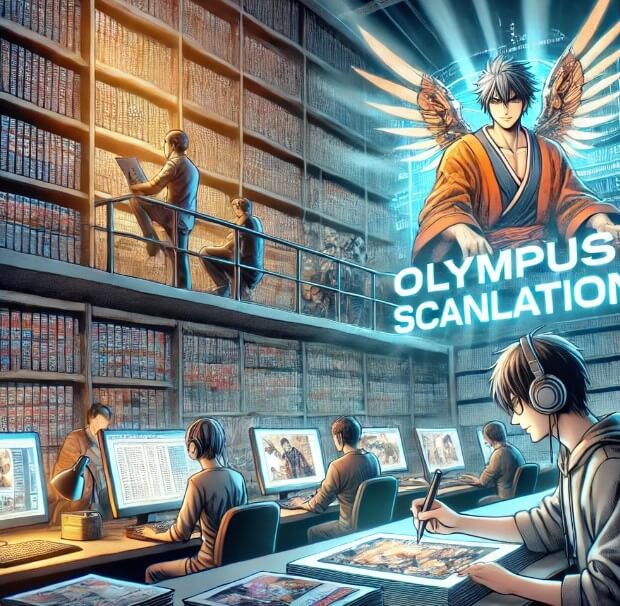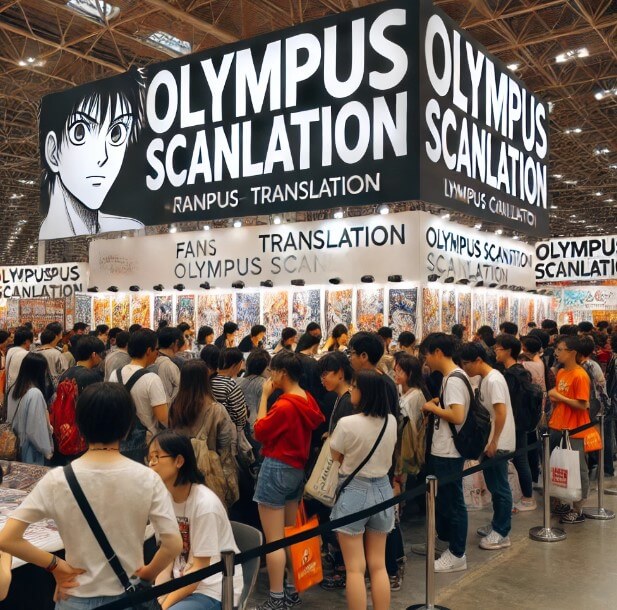In the expansive world of manga, fan-driven translation groups, known as scanlation teams, have played a pivotal role in making Japanese comics accessible to non-Japanese readers. Among these groups, Olympus Scanlation has emerged as a notable entity, dedicated to translating and sharing manga with a broader audience. This article delves into the origins, operations, impact, and ethical considerations surrounding Olympus Scanlation.
Understanding Scanlation
Scanlation is a portmanteau of “scan” and “translation.” It refers to the process where fans scan original manga pages, translate the text into another language (commonly English), and distribute the translated versions online. This practice originated in the early 2000s, driven by the global demand for manga that had not yet been officially licensed or translated.
The Genesis of Olympus Scanlation

Olympus Scanlation was founded in the mid-2000s by a group of manga enthusiasts eager to share unlicensed or niche titles with the global community. Their mission was to provide high-quality translations, ensuring that the essence and nuances of the original work were preserved. Over time, Olympus Scanlation gained recognition for its meticulous attention to detail and commitment to delivering polished final products.
Operational Workflow of Olympus Scanlation
The scanlation process employed by Olympus Scanlation is both intricate and collaborative, involving several key steps:
- Raw Acquisition: Team members obtain raw scans of manga chapters, either through purchasing physical copies or sourcing digital versions.
- Translation: Skilled translators convert the original Japanese text into English, striving to maintain the author’s intended meaning and cultural nuances.
- Cleaning: Editors remove the original Japanese text from the scanned pages, ensuring the artwork remains intact and ready for the new text.
- Typesetting: The translated text is carefully placed into the speech bubbles and captions, matching the style and tone of the original manga.
- Quality Control: Before release, the chapter undergoes thorough proofreading and editing to correct any errors and ensure consistency.
- Distribution: The finalized chapter is uploaded to various online platforms, making it accessible to readers worldwide.
Impact on the Manga Community

Olympus Scanlation has significantly influenced the global manga community in several ways:
- Accessibility: By translating unlicensed or obscure titles, they have made a diverse range of manga available to non-Japanese readers.
- Community Building: Their work has fostered a sense of community among fans, encouraging discussions and engagement around various manga series.
- Promotion of Niche Genres: By focusing on lesser-known titles, Olympus Scanlation has brought attention to genres and series that might otherwise remain unnoticed.
Ethical and Legal Considerations
While scanlation has democratized access to manga, it operates in a legal gray area. Translating and distributing copyrighted material without permission can infringe on the rights of creators and publishers. Critics argue that scanlation may negatively impact official sales and discourage publishers from investing in new translations. However, proponents contend that scanlation fills a gap, especially for titles that lack official translations, and can even boost interest in manga, leading to increased sales when official versions become available.
The Future of Olympus Scanlation
As the manga industry continues to evolve, the role of scanlation groups like Olympus Scanlation may change. With more publishers investing in official translations and digital platforms offering timely releases, the necessity for fan-driven translations might diminish. Nonetheless, the passion and dedication of groups like Olympus Scanlation highlight the enduring global love for manga and the desire to make it accessible to all.
FAQs
- What is Olympus Scanlation?
- Olympus Scanlation is a fan-operated group dedicated to translating and sharing manga, particularly titles that are unlicensed or less known, making them accessible to a broader audience.
- Is scanlation legal?
- Scanlation exists in a legal gray area. Translating and distributing copyrighted material without permission can infringe on the rights of creators and publishers.
- How can I support manga creators legally?
- Purchasing official releases, subscribing to authorized digital platforms, and supporting licensed merchandise are ways to support manga creators and the industry.
- Does Olympus Scanlation charge for their translations?
- No, Olympus Scanlation provides their translated manga for free, operating on a non-profit basis driven by a passion for sharing manga.
- Can I join Olympus Scanlation as a translator or editor?
- Many scanlation groups welcome volunteers. Interested individuals should visit Olympus Scanlation’s official website or contact them directly to inquire about opportunities.
Conclusion
Olympus Scanlation has played a significant role in bringing diverse manga titles to a global audience. While their contributions have enriched the manga community, it’s essential to consider the ethical and legal implications of scanlation and support official releases whenever possible.
Visit GLOBEYA for more!



